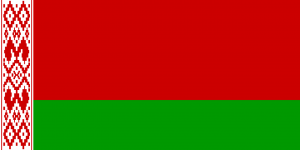Language/Belarusian/Grammar/Infinitives
| ◀️ Present Tense — Previous Lesson | Next Lesson — Past Tense ▶️ |
As a Belarusian language teacher for 20 years, I know that infinitives can be tricky for language learners. However, mastering infinitives is essential for fluency in the Belarusian language. In this lesson, you will learn how to use Belarusian infinitives.
Once you've mastered this lesson, take a look at these related pages: Pronouns & Adverbs.
What are Infinitives?
In Belarusian, infinitives are the base form of the verb. We use infinitives to talk about actions, states, or events in a general sense, without specifying who or what is performing the action. In English, infinitives are usually formed by adding "to" to the base form of the verb (e.g. to go, to eat, to sing). In Belarusian, the infinitive usually ends in "-ць".
Here are some examples of Belarusian verbs in the infinitive form:
| Belarusian | Pronunciation | English |
|---|---|---|
| робіць | ra-bits' | to do |
| гуляць | hoo-lyats' | to play |
| спець | spe-ts' | to sleep |
When to Use Infinitives
Infinitives are used in various ways in Belarusian. Here are some of the most important uses:
1. As the Subject of a Sentence
Infinitives can be used as the subject of a sentence when the focus is on the action, rather than the person performing the action.
Here are some examples:
- Гуляць - гэта прыемна. (Playing is pleasant.)
- Спаць - найлепшы лек. (Sleeping is the best medicine.)
2. After Modal Verbs
Infinitives are often used after modal verbs (verbs that express possibility, obligation, permission, or ability), such as:
- магчымасць (may / might)
- трэба / павінна (must, should, ought)
- маю / можа (can, could)
Here are some examples:
- Я магу гуляць у тэніс. (I can play tennis.)
- Мне трэба ўчыцца беларускай мовы. (I must learn the Belarusian language.)
- Мы можам ысці ў кіно. (We can go to the cinema.)
3. After Prepositions
Infinitives can be used after certain prepositions, such as:
- дзеля (for the sake of)
- каб (in order to)
- пасля (after)
- перад (before)
Here are some examples:
- Я роблю гэта дзеля здароўя. (I do it for my health.)
- Каб выжыць, чалавеку трэба есці. (In order to survive, a person needs to eat.)
- Пасля гульні я наелся. (After the game, I ate.)
- Перад спацэма я ўмыўся. (Before sleeping, I washed.)
Infinitive Construction
Infinitives are formed in two ways in Belarusian: with the suffix "-ць" and with the particle "бы".
The infinitive with "-ць" is the most common and is used in most situations. Here are some examples:
- робіць
- гуляць
- спець
The infinitive with "бы" is a more formal alternative and is often used in writing or for emphasis. Here are some examples:
- быць
- робіць бы
- гуляць бы
Note that the "бы" particle is not a separate word, it is attached to the end of the stem.
Conclusion
Infinitives may seem challenging at first, but with practice, you will soon find yourself using them with ease. Remember to use them as the subject of a sentence, after modal verbs, and after prepositions. Also, practice forming infinitives with "-ць" and "бы".
Thank you for joining me in this lesson. Keep practicing your Belarusian infinitives and soon you will become a fluent speaker!
Upon wrapping up this lesson, take a look at these related pages: Present Tense & Gender Agreement.
Other Lessons
- Prepositional Case
- Prepositions
- Gender
- How to Use Have
- Comparatives
- Pronouns
- Questions
- Present Tense
- Adverbs
- Plurals
| ◀️ Present Tense — Previous Lesson | Next Lesson — Past Tense ▶️ |

